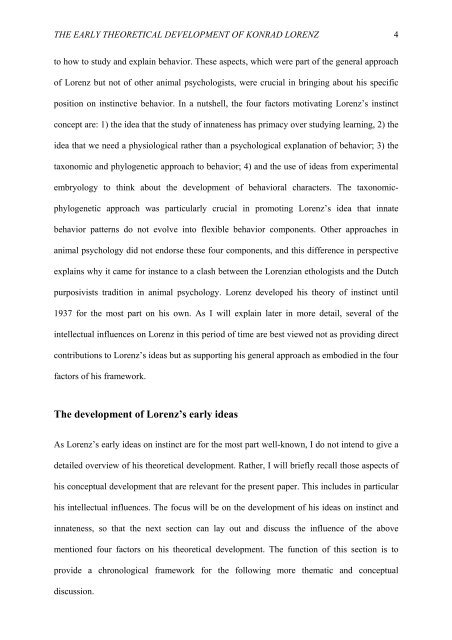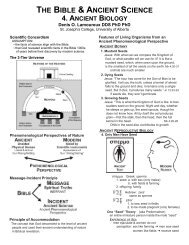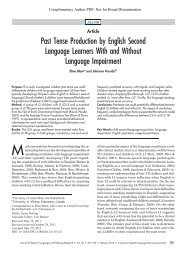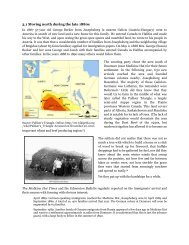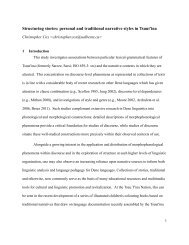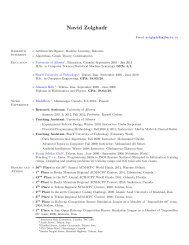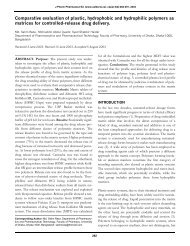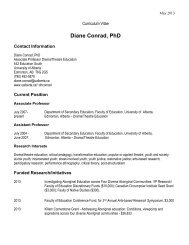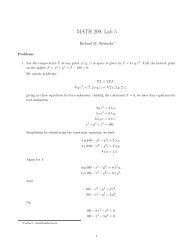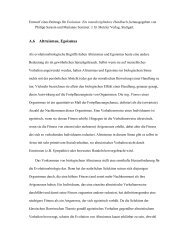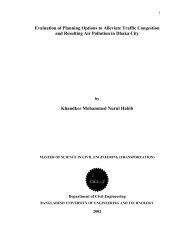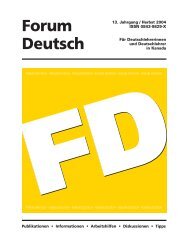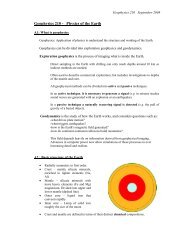The early theoretical development of Konrad Lorenz - University of ...
The early theoretical development of Konrad Lorenz - University of ...
The early theoretical development of Konrad Lorenz - University of ...
You also want an ePaper? Increase the reach of your titles
YUMPU automatically turns print PDFs into web optimized ePapers that Google loves.
THE EARLY THEORETICAL DEVELOPMENT OF KONRAD LORENZ 4<br />
to how to study and explain behavior. <strong>The</strong>se aspects, which were part <strong>of</strong> the general approach<br />
<strong>of</strong> <strong>Lorenz</strong> but not <strong>of</strong> other animal psychologists, were crucial in bringing about his specific<br />
position on instinctive behavior. In a nutshell, the four factors motivating <strong>Lorenz</strong>’s instinct<br />
concept are: 1) the idea that the study <strong>of</strong> innateness has primacy over studying learning, 2) the<br />
idea that we need a physiological rather than a psychological explanation <strong>of</strong> behavior; 3) the<br />
taxonomic and phylogenetic approach to behavior; 4) and the use <strong>of</strong> ideas from experimental<br />
embryology to think about the <strong>development</strong> <strong>of</strong> behavioral characters. <strong>The</strong> taxonomicphylogenetic<br />
approach was particularly crucial in promoting <strong>Lorenz</strong>’s idea that innate<br />
behavior patterns do not evolve into flexible behavior components. Other approaches in<br />
animal psychology did not endorse these four components, and this difference in perspective<br />
explains why it came for instance to a clash between the <strong>Lorenz</strong>ian ethologists and the Dutch<br />
purposivists tradition in animal psychology. <strong>Lorenz</strong> developed his theory <strong>of</strong> instinct until<br />
1937 for the most part on his own. As I will explain later in more detail, several <strong>of</strong> the<br />
intellectual influences on <strong>Lorenz</strong> in this period <strong>of</strong> time are best viewed not as providing direct<br />
contributions to <strong>Lorenz</strong>’s ideas but as supporting his general approach as embodied in the four<br />
factors <strong>of</strong> his framework.<br />
<strong>The</strong> <strong>development</strong> <strong>of</strong> <strong>Lorenz</strong>’s <strong>early</strong> ideas<br />
As <strong>Lorenz</strong>’s <strong>early</strong> ideas on instinct are for the most part well-known, I do not intend to give a<br />
detailed overview <strong>of</strong> his <strong>theoretical</strong> <strong>development</strong>. Rather, I will briefly recall those aspects <strong>of</strong><br />
his conceptual <strong>development</strong> that are relevant for the present paper. This includes in particular<br />
his intellectual influences. <strong>The</strong> focus will be on the <strong>development</strong> <strong>of</strong> his ideas on instinct and<br />
innateness, so that the next section can lay out and discuss the influence <strong>of</strong> the above<br />
mentioned four factors on his <strong>theoretical</strong> <strong>development</strong>. <strong>The</strong> function <strong>of</strong> this section is to<br />
provide a chronological framework for the following more thematic and conceptual<br />
discussion.


